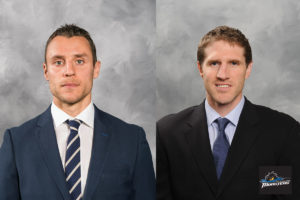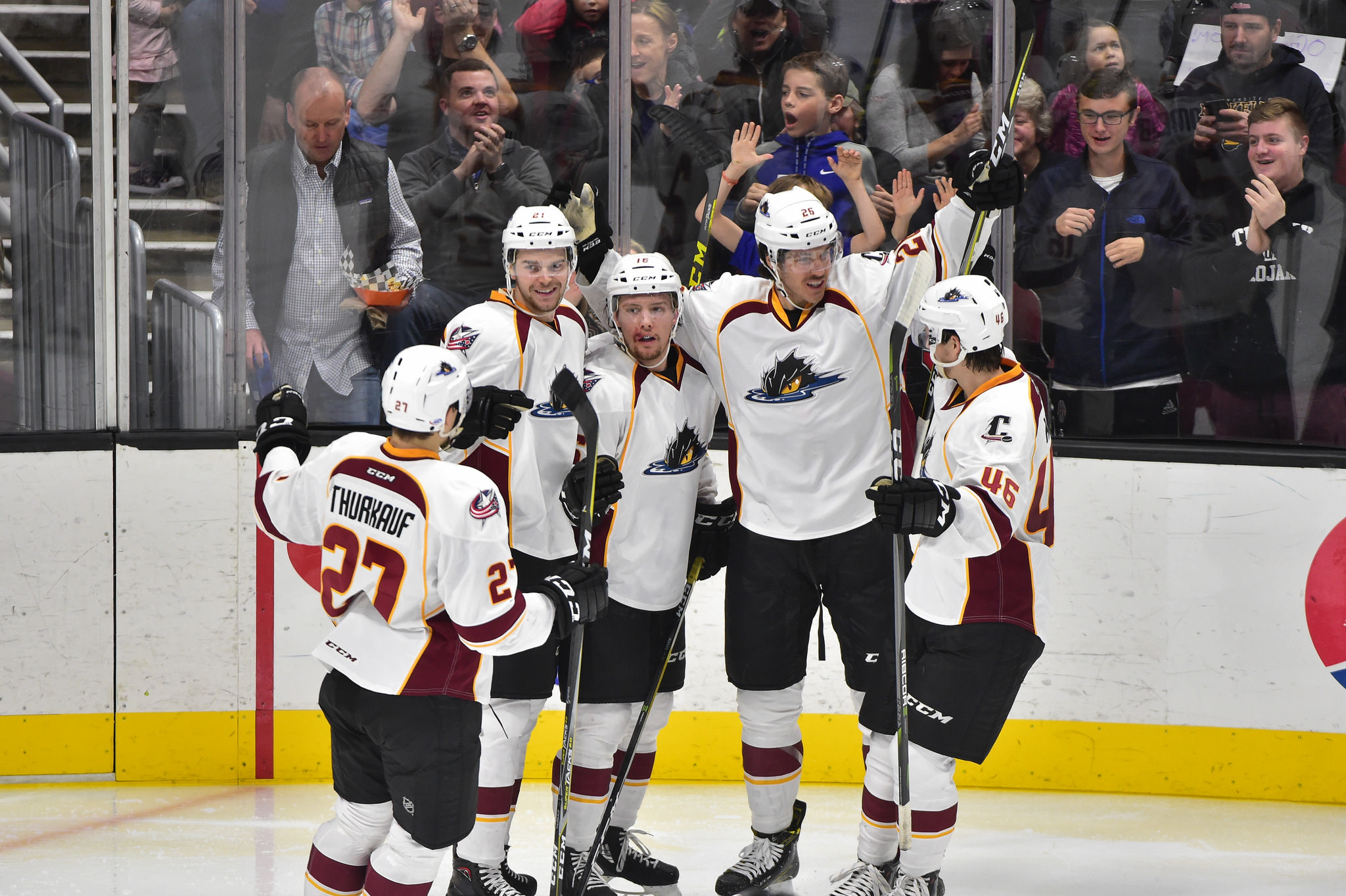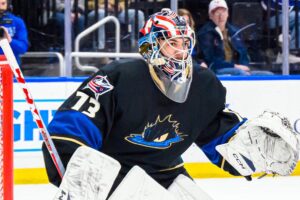By Tony Brown | AHL On The Beat
Over 88% of NHL players have played through the AHL at some point in their careers, and this season, the NHL’s Columbus Blue Jackets are aiding their top prospects’ development in an innovative way.
In lieu of employing a pair of assistant coaches in Cleveland, the Blue Jackets opted to utilize their development coaches, longtime NHL veterans Chris Clark and Gregory Campbell and the team’s European development coach Jarkko Ruutu, in a more immersive way. Their hope was that the coaches could foster real-time development throughout a long and grueling AHL regular-season.
Cleveland won the Calder Cup in 2016 behind a core of players that now dot the Blue Jackets’ roster and those of other NHL organizations. General manger Bill Zito explained prior to the 2017-18 season that, for all players, the best way to develop is to win.
“It’s a little bit of a chicken or the egg situation,” said Zito. “Do you put development in front of winning, or isn’t winning really development? We want to focus on the winning – educate, teach, enable, and provide the support to the players to be the best players they can be and challenge them by expecting them to win…We’re really going to push the importance of excellence and consistent excellence throughout the season.”
In pursuit of fostering a culture of accountability and success, the Blue Jackets opted to deploy their development coaches on the front lines in Cleveland this season.
“We’ve taken our development coaches and put them in a situation where they can work solely one-on-one at times with certain players while [Monsters assistant coach] Steve McCarthyand I are trying to get the team to win hockey games and put systems in place,” explained Monsters head coach John Madden. “[Clark and Campbell] will be with us in-and-out throughout the season and are on the bench during games…We’ve got two quality guys that know the game really well and this arrangement should be really beneficial to the players.”

A veteran of over 600 NHL games with the Calgary Flames, Washington Capitals, and Columbus spanning a 13-year professional career, Clark appeared in the Stanley Cup Finals with Calgary in 2004, captained Washington for four seasons from 2006-10, racked up 175 career AHL appearances, and helped the Saint John Flames capture the 2001 Calder Cup. Clark, 41, says the message a development coach can provide to a player during the season is a different one than the player might receive from a head or assistant coach.
“Having built up relationships with [Columbus’ top prospects] over the course of three or four years, you get a different rapport with the guys,” said Clark. “In-game, coaches are so focused on the overall game and what’s happening on the ice that, with myself and Gregory Campbell on the bench, we can fine-tune things a bit more and grab a player between shifts to go over something immediately, as opposed to waiting until after the game or until the next morning.”
Campbell, a Stanley Cup Champion with the Boston Bruins in 2011 and a veteran of 800-plus NHL games for the Florida Panthers, Boston, and Columbus spanning 13 pro seasons from 2003-16, agrees that the role of the development coach can be a unique and valuable one in the eyes of players.
“We’re an avenue for these players to get better and we’re available to them in whatever capacity they might need,” said Campbell. “The dynamic between a player and a coach is difference than the dynamic between a player and [Clark] and myself…We’ll be a voice for the players to the staff and for the coaching staff to the players when they see fit…We’re lucky to have a great staff and [Clark] and me are kind of the middle-men that hopefully can help with whatever the players need throughout the year.”
According to Clark, his redefined role also provides him with a welcome return to the daily grind of professional hockey.
“When you’re scouting, you feel more removed from the game and with player development, as it is, you’re a little more involved,” said Clark. “But this is one more step in that process where you’re in-game and you feel like you’re more of an influence on the ice…I love that side of it and you certainly feel more invested in the players and the team.”






































